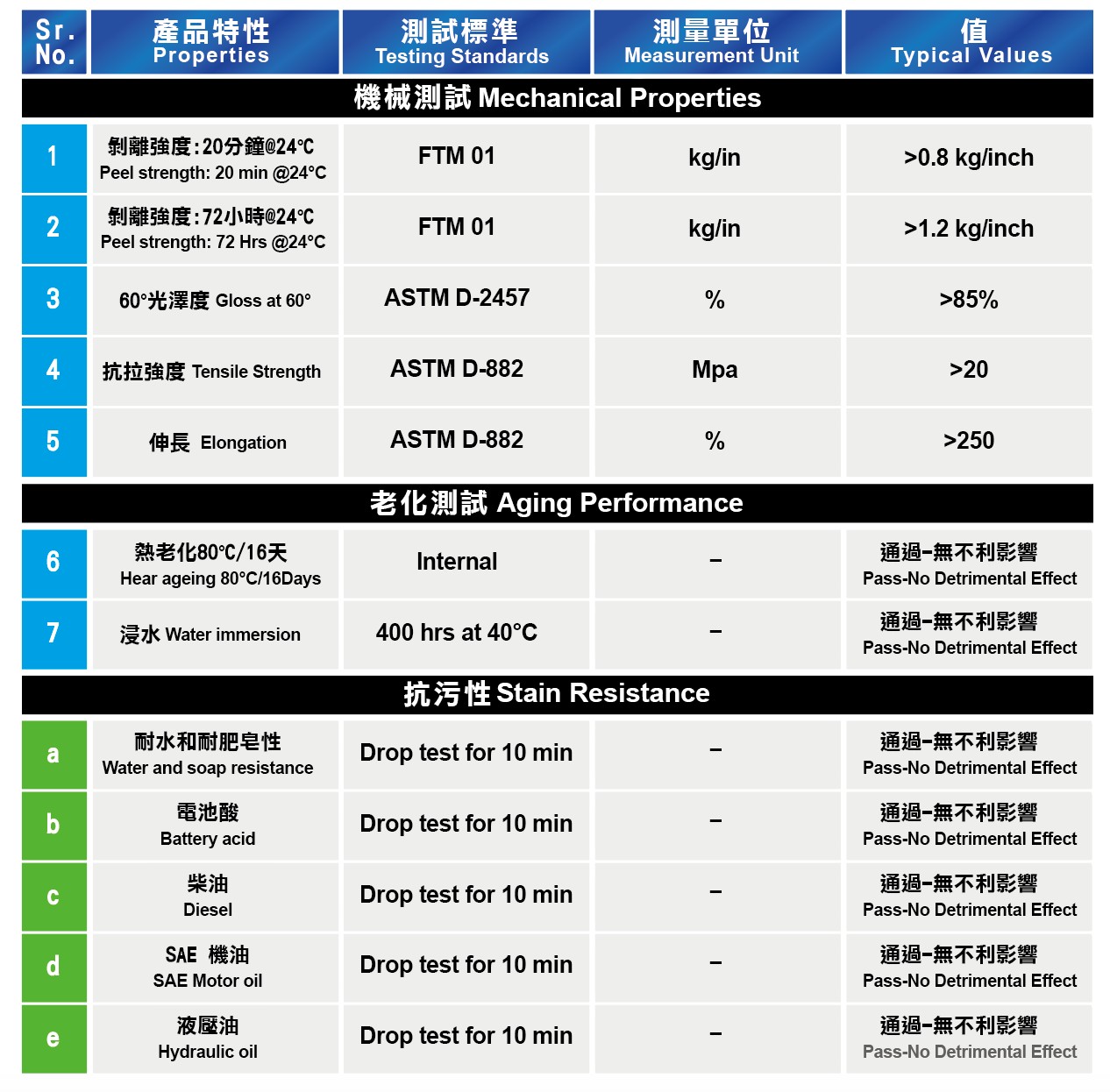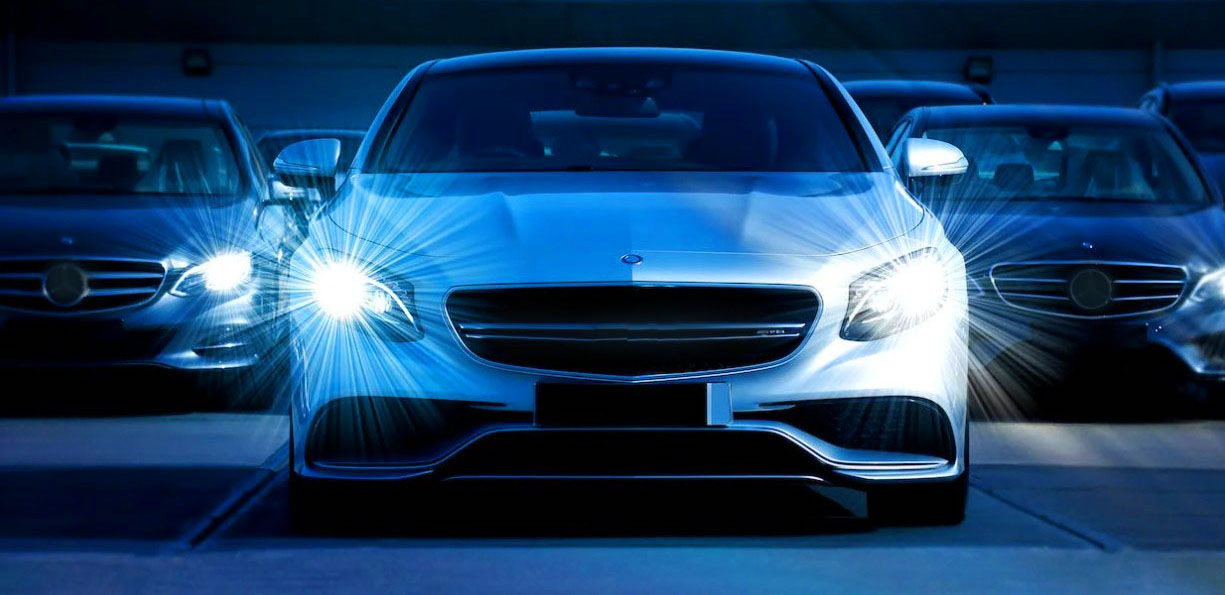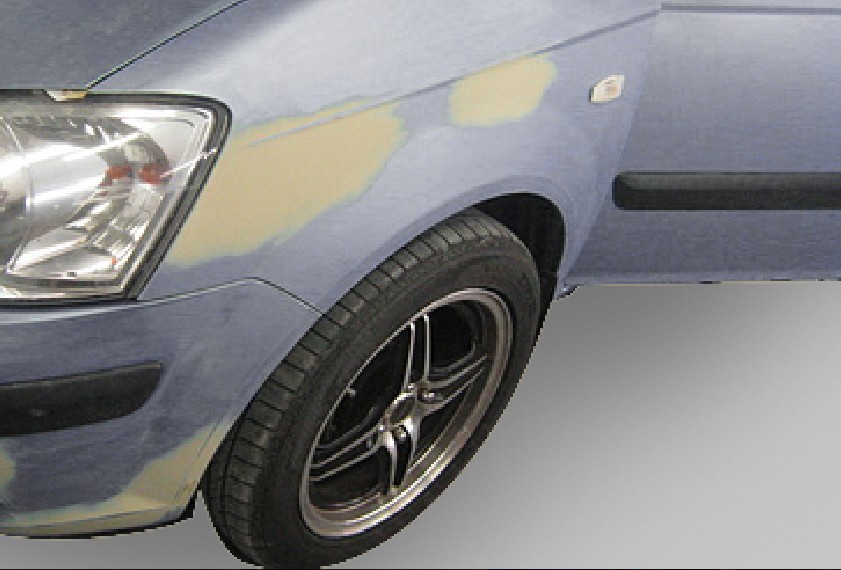GAMA Car PPF
GAMA Car PPF
GAMA PPF S10

The top GAMA body protection film PPF is a specially formulated paint protection film. Taiwan PPF coating is commonly known as rhinoceros skin. GAMA car body protection film is composed of high-performance pressure-sensitive adhesive, ultra-transparent TPU film and a unique self-healing coating. It can effectively increase the brightness of your car’s paint and protect the integrity of your car’s paint surface, avoiding damage to your car’s paint surface. Harmful effects caused by stone chips or other external wear and tear. Top PPF PREMIUM PAINT PROTECTION FILM is different from ordinary coatings. PPF (Paint Protection Film) has a transparent physical protective film, which is 50-70 times thicker than traditional coatings, and can effectively protect It is a must-have car body protection film for car lovers as it protects against physical damage such as the impact of gravel on the highway.

Product features:
The products all use polyester-type TPU particles, which have better optical properties, anti-yellowing, tensile and other properties.
1. Non-yellowing TPU base material, every meter of film is made of polyester TPU material, which can prevent yellowing for a long time and ensure your film application experience.
2. Automatic scratch repair It has intuitive automatic repair performance. Small scratches such as car wash scratches and sun glare can be automatically repaired when exposed to heat and rebound as before.
3. Anti-fouling and anti-corrosion advanced technical coating can resist various acid rain, insect corpses, gum and other pollution, and long-lasting protection of the original paint surface
4. Improve the brightness of car paint. Our bright paint mask has been tested by professional instruments and the surface gloss of the film is as high as 94, allowing you to regain the feeling of a new car.
Product structure:
 Main features of GAMA body wrap:
Main features of GAMA body wrap:
Excellent optical clarity
Excellent stain resistance
natural restorative properties
Ultra-high hydrophobic properties
Super effective anti-yellowing
Excellent chemical resistance
Easy to install on curved surfaces


1. Protect the baking paint from acid rain:
In the industrialized world, acid rain causes great damage to sheet metal. The coating can protect the paint from acid rain and extend the life of the sheet metal.

2. Easy maintenance and no waxing required:
Waxing your car will gradually wear away the paint, which will add up to a considerable expense in the long run. As long as you wash your car without waxing, you can save money and time.

3. Prevent damage from sand, jumping rocks, asphalt, tree sap, insect corpses, bird droppings, acid rain, and industrial dust:
The coating effectively isolates direct damage to the vehicle body sheet metal from external substances.

4. Protection of important parts:
The hood, rearview mirror, door sill, trunk, etc… are the most commonly scratched places, and the car body can be effectively protected through the film.

5. Changes color quickly without damaging the paint:
If you get tired of looking at your car, you can change it to a new color at any time. It is easy to apply and remove. The special film design does not damage the paint.

6. Maintain your car’s value:
After driving the car for five years, the sheet metal remains as good as new after removing the coating, thus reducing vehicle depreciation.

7. Taxi discoloration and economical options:
Nowadays, taxis are all painted. When you want to sell them, you need to spend money to repaint them to change the color. However, the painted sheet metal does not work well and loses its value, and it costs twice for the sheet metal.
Using car body wrap to change the color can protect the sheet metal at a one-time cost. When selling the car, you only need to remove the film, which is a more efficient and economical choice.

Types of ingredients of car body wrapping materials

1. Cast film:
Generally used for 7-11 and McDonald’s signboards, the weather-resistant film has a manufacturing process and cost that are 6 to 10 times higher than traditional Cardan films. It is stable, heat-resistant, cold-resistant, corrosion-resistant, UV-resistant, and stretchable. It has good adhesion and very stable molecular structure. It is the first choice for adhesive films and is a high-priced car body wrapping material.
2. Rolling film:
It uses high-molecule anti-UV polyvinyl chloride (PVC). Its stability, heat resistance, cold resistance, corrosion resistance, UV resistance, and ductility are better than those of Cardian West Germany. It is a mid-to-high-priced car body wrapping material.
3. Katherine West Germany:
The so-called cheap PVC film used for advertising has no anti-UV treatment, has a loose and unstable molecular structure, is not weather-resistant, is easy to fade, and is easy to yellow. Over time, the film will become brittle and cracked and difficult to remove. Many mainland brands In order to reduce costs, they are all used, and then the English brand fish eyes are mixed with beads.
4. PPF self-healing membrane:
Polyurethane (Polyurethane, IUPAC abbreviated as PU) is a type of polymer containing characteristic units of urethane in the main chain.
It has good elasticity and extensibility and is widely used in industrial fields such as coatings, adhesives, low-speed tires, gaskets, and car wrap materials. In daily life, polyurethane is used to make various foams and plastic sponges.
Polyurethane is also used in the manufacture of condoms and medical equipment and materials. Due to its good ductility and penetration resistance, it has excellent protection against stone jumping at high speeds.

Post-coating care
After completing the car wrap, you only need to pay attention to a few daily maintenance items to keep the car wrap looking bright and beautiful for a long time. Here are some expert suggestions: Keep the car body tidy – Once the car body is stained with oil, it is recommended to wipe it immediately to avoid the oil staying for too long and causing the vinyl film to deteriorate. After the stain is removed, wash the car body by hand and keep it dry.
Provide a good environment for your car – it is recommended to park the vehicle indoors or in an area with a sunshade. A good environment can protect the film from sunlight and ultraviolet exposure. If your vehicle cannot be parked in a garage, consider using a car cover to protect the bodywork.
Stain Treatment – Just like laundry, stains only get harder to remove as they age. Soak the stain in hot soapy water for a few minutes to soften it, then rinse thoroughly and dry. Do not use brushes or grinding tools to avoid scratching the film.
Best to hand wash – Wash your car by hand if possible. If you must take your car to an automatic car wash, choose a non-contact car wash, as the car wash brush may not be soft enough and can scratch the film or even cause the edges to lift. . By following the above maintenance suggestions, you can keep your car wrap in optimal condition, making it look like new and becoming the center of attention on the road.
 | 1. How to remove water spots? • Water stains contain minerals, calcium carbonate, dust or acidic organic substances. When it precipitates or accumulates for a period of time and is etched, it causes water stains that may not be removed. • Superficial scale can be effectively removed using GAMA’s special descaling agent. | |
 | 2. Does it eliminate the need to wash the car after coating? Just because your car has a body protection film installed, it doesn’t mean you don’t need to wash it. Dust and organic substances in the air or outdoor environment, such as: acid rain, dew, tree juice sap, industrial dust, asphalt, flying paint iron powder, bird droppings, insect corpses… Various acidic organic substances remain in the protective film and accumulate for a period of time. Cleaning will destroy the protective film and may corrode the car paint. | |
 | 3. How to maintain the car body protective film after installing it? . After installing the film, clean and wash the car regularly to keep it bright and new. | |
 | 4. Does the car paint protection film have anti-UV heat insulation function? Ultraviolet rays in sunlight can cause oxidation and cause plastic degradation, accelerating the functional deterioration of appearance. | |
 | 5. Why is there color difference in baking paint? When an opaque or black film is pasted on the paint surface of the car body, the unilluminated paint color and the directly illuminated paint color receive different levels of light, so there will be a color difference in the paint color of the unilluminated area and the illuminated area. | |
 | 6. Sharing experience in applying black film on car roof When the black car film is pasted on the white car paint, the black color absorbs too much UV light and heat. In a closed space, the heated car paint will show false yellowing. After the black film is removed, in an open environment , white car paint does not absorb reflected light, dissipates heat quickly, and gradually returns to white. | |
 | 7. How long can the rhino leather protective film be used? How long does it take to replace? The durability of rhinoceros leather is closely related to daily maintenance methods and parking environment. Even if the rhinoceros leather is thick, if it is not regularly maintained and used correctly, it will cause the rhinoceros to quickly decompose and oxidize prematurely. According to our many years of actual cases and experience data, the durability of rhino leather ranges from 1 to 6 years. Rhino leather is not a panacea. It must be cleaned and maintained regularly to maintain its functionality. | |
 | 8. Non-warranty coverage-high-risk environment High damage, poor decomposition and aging car paint protection film The long-term suspension is under the iron carport and the lighting cover carport. Long-term suspension of operations around incineration plants and garbage dumps. Long-term suspension around steel manufacturing plants. Long-term suspension of operations in industrial areas and thermal power plants. Long-term suspension of fishing ports and coastal areas. Long-term suspension around the restaurant kitchen. | External pollution that damages the protective film Acid rain and dew form water spots, etching marks and atomization Insect carcasses, bird droppings, and bee poop imprints Staining or branding marks on flowers, fruits and plants Suspended particles falling from incineration plants and garbage dumps Vehicle exhaust, atomization and staining caused by engine oil Rusty water dripping from carports and eaves |
 | 9. Will the film cause fogging of the lamp housing? A car light shell that is as complete as new is most suitable for film protection. It can be wrapped and protected without fear of fine sand and flying rocks bouncing around. | |
 | 10. What is the principle of TPU autologous repair? The principle of automatic repair coating is this. The molecules of the material are separated due to being squeezed. In other words, the scratch is not actually scratched. Then, because there are no molecules to take over the scratched position, there will naturally be no scratch. When the external force leaves , the molecular structure is restored to its original state, and the repair effect is produced. | |
 | 11. What should I do if the car film is scratched? Contact the film construction shop → Take a photo of the scratched location and upload it to the construction shop → Make an appointment for inspection, repair and replacement of the film. The procedure is simple and fast, which is the benefit of wrapping. | |
 | 12. Will the coating affect the vehicle inspection? The installation of transparent and transparent matte paint protection films on the vehicle does not change the original paint color of the vehicle and is consistent with the vehicle’s license plate, so it does not affect the vehicle inspection. | |
 | 13. What situations will cause the protective film to age or be damaged? Never wash the car after applying the film. Strong water jets cause the protective film to fall off and warp. Strong alkaline acid agents, tar removers, and iron removal powders cause atomization. Polishing, waxing and grinding cause atomization. I was accidentally bumped and scratched by three treasures on the road. Caught by stones. | |
 | 14. Which kind of car owner is not suitable for film? Leaving it exposed to the sun and rain without washing the car (may cause oxidation and atomization in 6-12 months). | |
 |
| |
 | 16. How lethal is ultraviolet light? Abo, who goes to farm every day as the sun rises, has a very fast skin aging. A new white car has color differences in the bumper and hood after half a year. The colors of roadside advertising signs are fading day by day. UV ultraviolet radiation sunburns the skin, causes wrinkles, and causes premature aging of the skin. Similarly, under ultraviolet rays or high temperatures, the protective film is subject to oxidation reactions, which accelerates atomization and aging. Reminder: When the protective film becomes atomized, it must be replaced in time. | |
 | 17. Can film be applied after repainting? After the new car leaves the factory, accessories and plastic parts are installed. It is not allowed to bake paint at high temperatures of 170 degrees to 200 degrees like new car manufacturers to dry and harden the paint (called high temperature setting baking). Instead, the paint or metal is baked The oil mixed with hardener is used as a bridging agent to cause chemical changes in the paint or gold oil to dry and harden, and then it is baked at a temperature below 70-80 degrees (called low-temperature baking), so the quality of the paint is different. | |
 | 18. What should I do if the protective film is stained with bird droppings? Bird droppings contain acidic ammonia, phosphoric acid, oxalic acid, and carbonate. Applying a protective film can prevent bird droppings from directly corroding the car paint. When being bombarded by urine and droppings, quickly wipe it off with a wet paper towel before it has dried. , don’t let smelly bird droppings form brand marks on the membrane surface. | |
 | 19. Will the self-healing film automatically bond if it is broken? The ability of the self-repairing film means that the surface of rhinoceros leather is coated with an organic compound coating. When the repair coating is scratched, the free soft molecules will rebound at an ambient temperature of 30-40 degrees or higher. Original condition. | |
 | 20. How long is the warranty for the protective film? After installing the paint protection film, perform regular maintenance, comply with maintenance instructions, and comply with the scope of use. The original factory warranty is five years. | |
 | 21. What is the difference between the car-specific version and the manual version? Special version for special vehicles – cut the protective film into the same pattern as the sheet metal parts and install it on the sheet metal parts. There is no need to use a separate tool to cut the film on the car body, which can avoid scratches on the paint. | |
 | 22. Will the film damage the paint? The material of the paint protection film is non-destructive and will not interact with the car paint. After installing the film, perform regular maintenance, comply with the maintenance instructions and comply with the scope of use. The car paint can remain bright and new. | |
 | 23. What causes rhino skin atomization? When the protective film is exposed to light for a long time, the ultraviolet rays in the sun will trigger photo-oxidation and lead to degradation, which will eventually cause the appearance and functionality of the protective film to deteriorate (fog). Therefore, the protective film is installed on vehicles parked outdoors rather than in indoor garages. The vehicle has a shorter service life. | |
 | 24. Is waxing necessary after applying the film? Grinding and polishing the surface of the protective film will cause fine lines and sunbursts on the protective film if you are not careful. | |
Result of Using GAMA PPF


